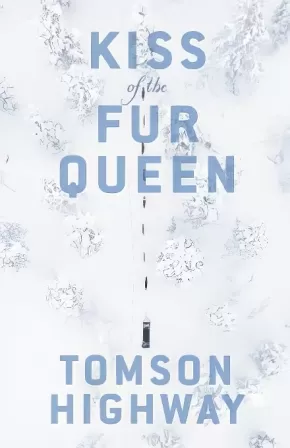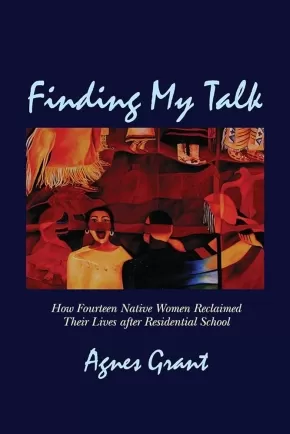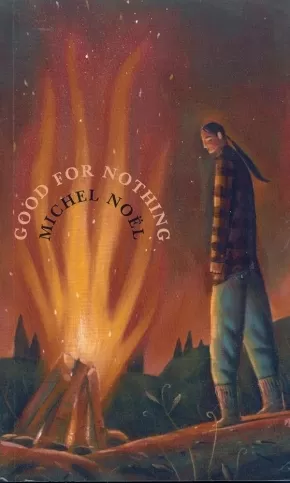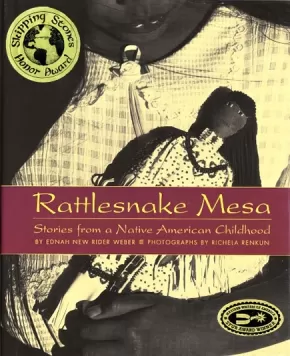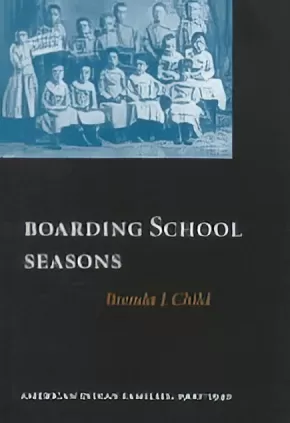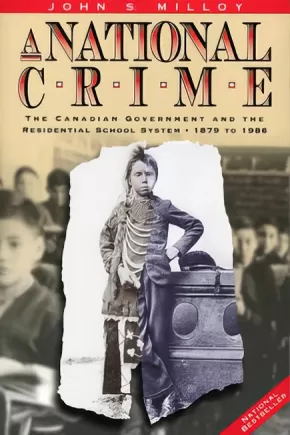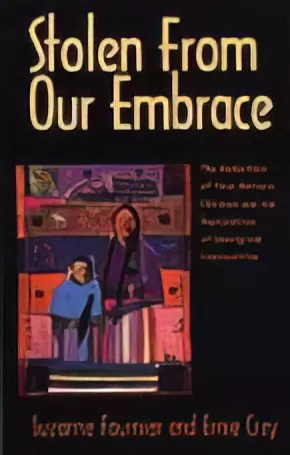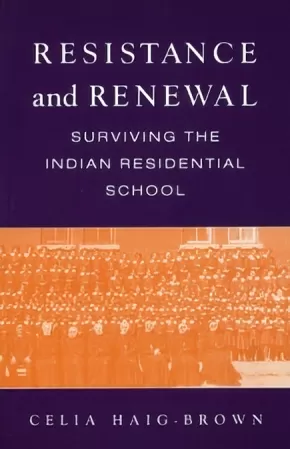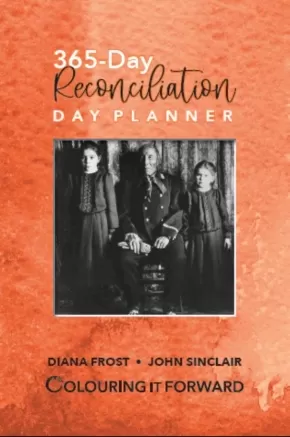
Residential Schools / Reconciliation
106
-
116
of
116 Results;
Sort By
Go To
of 8
To deepen and support your understanding of what the Indian Residential School experience was and its impact on Canada please download this document, They Came For the Children:
Click here: They Came For the Children
Project of Heart” is an inquiry based, hands-on, collaborative, inter-generational, artistic journey of seeking truth about the history of Indigenous people in Canada. Its purpose is to:
Examine the history and legacy of Indian Residential Schools in Canada and to seek the truth about that history, leading to the acknowledgement of the extent of loss to former students, their families and communities
Commemorate the lives of the thousands of Indigenous children who died as a result of the residential school experience.
Call Canadians to action, through social justice endeavors, to change our present and future history collectively
Click here to visit the website: Project Of Heart
Porcupines and China Dolls (1 in stock, in reprint)
$24.95
Format:
Hardcover
Text Content Territories:
Indigenous Canadian; First Nations; Dene; Dinjii Zhuh (Gwich'in);
ISBN / Barcode: 9781894778688
Synopsis:
Synopsis:
James Nathan and Jake Noland have been best friends for their entire lives. Like most residents in their small northern Gwich’in community, they like to get drunk, get high and sleep around. It helps them forget the past—a horrific past full of painful memories. At times just one bullet to the temple away from a self-inflicted death, James and Jake fumble through life, tormented and haunted by the demons of their residential school abuse.
The decision by one man to publicly disclose his abuse causes upheaval within the community and forces other victims to consider their options: either share their secret and begin healing, or maintain their silence and suffer alone. Raw and gripping, Porcupines and China Dolls is impossible to put down.
Educator Information
Resource for English First Peoples 11-12.
Additional Information
312 pages | 6.00" x 9.00"
Where the Blood Mixes
$16.95
Format:
Paperback
Text Content Territories:
Indigenous Canadian; First Nations; Salish; Interior Salish; Nlaka'pamux (Thompson);
ISBN / Barcode: 9780889226081
Synopsis:
Synopsis:
Irreverently funny and brutally honest Governor General's Award-winning play about loss and redemption. Cast of 2 women and 4 men.
Where the Blood Mixes is meant to expose the shadows below the surface of the author's First Nations heritage, and to celebrate its survivors. Though torn down years ago, the memories of their Residential School still live deep inside the hearts of those who spent their childhoods there. For some, like Floyd, the legacy of that trauma has been passed down through families for generations. But what is the greater story, what lies untold beneath Floyd's alcoholism, under the pain and isolation of the play's main character?
Loring's title was inspired by the mistranslation of the N'lakap'mux (Thompson) place name Kumsheen. For years, it was believed to mean "the place where the rivers meet"-the confluence of the muddy Fraser and the brilliant blue Thompson Rivers. A more accurate translation is: "the place inside the heart where the blood mixes." But Kumsheen also refers to a story: Coyote was disemboweled there, along a great cliff in an epic battle with a giant shape-shifting being that could transform the world with its powers-to this day his intestines can still be seen strewn along the granite walls. In his rage the transformer tore Coyote apart and scattered his body across the nation, his heart landing in the place where the rivers meet. Floyd is a man who has lost everyone he holds most dear. Now after more than two decades, his daughter Christine returns home to confront her father. Set during the salmon run, Where the Blood Mixes takes us to the bottom of the river, to the heart of a People. In 2009 Where the Blood Mixes won the Jessie Richardson Award for Outstanding Original Script; the Sydney J. Risk Prize for Outstanding Original Script by an Emerging Playwright; and most recently the Governor General's Literary Award for Drama.
Educator Information
Grades 10-12 English First Peoples resource for the units Childhood through the Eyes of Indigenous Writers and Further Steps toward Reconciliation.
Grades 10-12 English First Peoples resource for the units Childhood through the Eyes of Indigenous Writers and Further Steps toward Reconciliation.
Additional Information
96 pages | 5.50" x 8.50"
96 pages | 5.50" x 8.50"
Kiss of the Fur Queen
$22.00
Format:
Paperback
Text Content Territories:
Indigenous Canadian; First Nations; Cree (Nehiyawak);
ISBN / Barcode: 9780385697217
Synopsis:
Synopsis:
Kiss of the Fur Queen is a powerful and beautiful tale of siblings and tricksters, culture and trauma, and finding yourself in a world that tries to tell you who you are.
Born into a magical Cree world in snowy northern Manitoba, Champion and Ooneemeetoo Okimasis are all too soon torn from their family and thrust into the hostile world of a Catholic residential school. Their language is forbidden, their names are changed to Jeremiah and Gabriel, and both boys are abused by priests.
As young men, estranged from their own people and alienated from the culture imposed upon them, the Okimasis brothers fight to survive. But wherever they go, the Fur Queen--a wily, shape-shifting trickster--watches over them as they fulfill their destiny to become artists.
Educator Information
Grade 11/12 English First Peoples resource for the unit Further Steps toward Reconciliation - Understanding Residential Schools through Text.
Note: This novel contains mature and challenging material (profanity, coarse language, depictions of sex, sexual abuse, violence, etc.).
This resource is also available in French: Champion et Ooneemeetoo.
Additional Information
328 pages | 5.17" x 7.98"
Finding My Talk: How Fourteen Canadian Native Women Reclaimed Their Lives After Residential School (11 in Stock) - ON SALE
$15.00 $19.95
Format:
Paperback
Text Content Territories:
Indigenous Canadian;
ISBN / Barcode: 9781894856577
Synopsis:
Synopsis:
When residential schools opened in the 1830s, First Nations envisioned their own teachers, ministers, and interpreters. Instead, students were regularly forced to renounce their cultures and languages and some were subjected to degradations and abuses that left severe emotional scars for generations. In Finding My Talk, fourteen aboriginal women who attended residential schools, or were affected by them, reflect on their experiences. They describe their years in residential schools across Canada and how they overcame tremendous obstacles to become strong and independent members of aboriginal cultures and valuable members of Canadian society. Biographies include: Eleanor Brass, Journalist, Plains Cree, Saskatchewan, Rita Joe, Poet/Writer, Mi?kmaq, Nova Scotia, Alice French, Writer, Inuit, Northwest Territories Shirley Sterling, School Administrator/Storyteller, Nlakapmux, British Columbia, Doris Pratt, Education Administrator/Language Specialist, Dakota, Manitoba, Edith Dalla Costa, School Counsellor, Woodland Cree, Alberta, Sara Sabourin, Community Worker, Ojibway, Ontario. Dr. Agnes Grant worked with the Native Teacher Training programs at Brandon University, Manitoba, for thirty years. As an administrator and professor, she spent much of her time in remote communities. Dr. Grant is the author of No End of Grief: Indian Residential Schools in Canada and three other books. She lives in Winnipeg.
Authenticity Note: This book has received the Authentic Indigenous Text label because of the contributions of the fourteen Indigenous women who share their stories in it. It is up to readers to determine if this will work as an authentic text for their purposes.
Good For Nothing
$14.99
Format:
Paperback
Text Content Territories:
Indigenous Canadian; Métis;
ISBN / Barcode: 9780888996169
Synopsis:
Synopsis:
The year is 1959, and fifteen-year-old Nipishish returns to his Métis reserve in northern Quebec after being kicked out of residential school, where the principal tells him he's a good-for-nothing who, like all Indians, can look forward to a life of drunkenness, prison and despair.
The reserve, however, offers nothing to Nipishish. He feels even more isolated here. He remembers little of his late mother and father. In fact, he seems to know less about himself than the people at the band office. He must try to rediscover the old ways, face the officials who find him a threat, and learn the truth about his father's death.
Adolescents will find inspiration in his courage to reclaim his identity and claim his rightful place on the reserve. The book also provides great insight into the roots of many ongoing Indigenous issues.
Awards
- Winner of the Geoffrey Bilson Award for Historical Fiction
Educator Information
Recommended Ages: 12-15.
Curriculum Connections: Indigenous Studies, History, Geography, Social Sciences, English
Additional Information
256 pages | 4.25" x 7.00" | Written by Michel Noel. Translated by Shelley Tanaka.
Rattlesnake Mesa (3 in stock, Out of Print)
$21.95
Artists:
Format:
Hardcover
Text Content Territories:
Indigenous American; Native American; Navajo (Diné); Pawnee;
ISBN / Barcode: 9781584302315
Synopsis:
Synopsis:
After her beloved Grandmother dies, EdNah, a seven-year-old Pawnee girl, goes to live with a father she hardly knows on a Navajo reservation miles away. Heartbroken but resilient, she begins to create a new life for herself in this unfamiliar place.
Just as EdNah starts to feel at home in her new surroundings, she is sent away to a strict government-run Indian school. With her world turned upside down once again, EdNah must learn to rely on herself and her newfound community of friends.
Told in the unconventional voice of a seasoned storyteller, Rattlesnake Mesa is a true account of a girl coming-of-age during a complex time in America’s past. Both heartbreaking and humorous, you will be moved to tears and laughter as you experience EdNah’s spirited celebration of life as a healing.
Boarding School Seasons: American Indian Families, 1900-1940
$22.95
Format:
Paperback
Text Content Territories:
Indigenous American; Native American;
ISBN / Barcode: 9780803264052
Synopsis:
Synopsis:
Boarding School Seasons offers a revealing look at the strong emotional history of Indian boarding school experiences in the first half of the twentieth century. At the heart of this book are the hundreds of letters written by parents, children, and school officials at Haskell Institute in Kansas and the Flandreau School in South Dakota. These revealing letters show how profoundly entire families were affected by their experiences.
Children, who often attended schools at great distances from their communities, suffered from homesickness, and their parents from loneliness. Parents worried continually about the emotional and physical health and the academic progress of their children. Families clashed repeatedly with school officials over rampant illnesses and deplorable living conditions and devised strategies to circumvent severely limiting visitation rules. Family intimacy was threatened by the school's suppression of traditional languages and Native cultural practices.
Although boarding schools were a threat to family life, profound changes occurred in the boarding school experiences as families turned to these institutions for relief during the Depression, when poverty and the loss of traditional seasonal economics proved a greater threat. Boarding School Seasons provides a multifaceted look at the aspirations and struggles of real people.
A National Crime: The Canadian Government and the Residential School System
$26.95
Format:
Paperback
Text Content Territories:
Indigenous Canadian;
Grade Levels: University/College;
ISBN / Barcode: 9780887556463
Synopsis:
Synopsis:
“I am going to tell you how we are treated. I am always hungry.” — Edward B., a student at Onion Lake School (1923)
“[I]f I were appointed by the Dominion Government for the express purpose of spreading tuberculosis, there is nothing finer in existence than the average Indian residential school.” — N. Walker, Indian Affairs Superintendent (1948)
For over 100 years, thousands of Aboriginal children passed through the Canadian residential school system. Begun in the 1870s, it was intended, in the words of government officials, to bring these children into the “circle of civilization,” the results, however, were far different. More often, the schools provided an inferior education in an atmosphere of neglect, disease, and often abuse.
Using previously unreleased government documents, historian John S. Milloy provides a full picture of the history and reality of the residential school system. He begins by tracing the ideological roots of the system, and follows the paper trail of internal memoranda, reports from field inspectors, and letters of complaint. In the early decades, the system grew without planning or restraint. Despite numerous critical commissions and reports, it persisted into the 1970s, when it transformed itself into a social welfare system without improving conditions for its thousands of wards. A National Crime shows that the residential system was chronically underfunded and often mismanaged, and documents in detail and how this affected the health, education, and well-being of entire generations of Aboriginal children.
Additional Information
424 pages | 6.00" x 9.00"
Stolen from Our Embrace: The Abduction of First Nations Children and the Restoration of Aboriginal Communities
$26.95
Format:
Paperback
Text Content Territories:
Indigenous Canadian; First Nations;
ISBN / Barcode: 9781550546613
Synopsis:
Synopsis:
This important and timely book is a balance of the most gruesome elements of assimilation: church-run schools, the child welfare system, survivors of sexual abuse, and Foetal Alcohol Syndrome counter-balanced against heroic stories of children who survived, fought back, and found their way home.
Harrrowing stories are presented wherever possible in the first person, by Fournier, a journalist, and Cree, a B.C native spokesperson and activist, and a stolen child himself. The final message is optimistic, suggesting that redress and reconciliation could enrich the entire country by creating healthy aboriginal communities.
Resistance and Renewal: Surviving the Indian Residential School (4 in Stock)
$19.95
Format:
Paperback
Text Content Territories:
Indigenous Canadian;
ISBN / Barcode: 9780889781894
Synopsis:
Synopsis:
One of the first books published to deal with the phenomenon of residential schools in Canada, Resistance and Renewal is a disturbing collection of Native perspectives on the Kamloops Indian Residential School(KIRS) in the British Columbia interior. Interviews with thirteen Natives, all former residents of KIRS, form the nucleus of the book, a frank depiction of school life, and a telling account of the system's oppressive environment which sought to stifle Native culture.
Winner of the Roderick Haig-Brown Regional Prize (BC Book Prize) in 1989.
Now in its 8th printing.
Authenticity Note: This book has received the Authentic Indigenous Text label because of the interviews and contributions of Indigenous peoples in this work, whom the author thanks and acknowledges in the introduction of the book. It is up to readers to determine if this an authentic work for their purposes.
Reconciliation Day Planner (7 in Stock)
$42.00
Artists:
Format:
Paperback
Text Content Territories:
Indigenous Canadian;
ISBN / Barcode: 21-DF-046-1
Synopsis:
Synopsis:
Colouring It Forward is honoured to have collaborated with Cree Elder John Sinclair in the design of this day planner that is dedicated to fostering Truth and Reconciliation. They are also grateful to Ashley Barclay for her artwork, to Crystal Fraser and Sara Komarnisky for allowing us to share some of their recommended Acts of Reconciliation.
Would you like to learn more about Indigenous issues, and culture to participate more fully in reconciliation?
This day planner offers you:
- Answers to questions about culture, issues and spirituality by Cree elder John Sinclair
- suggested ReconciliActions
- important Indigenous dates to observe
- update on the TRC's 94 Calls to Action: where the government is at with implementing the Calls to Action
- 3 colouring images by Metis artist Ashley Barclay
- 365 undated pages to record your meetings, your daily gratitude and your reconciliation plans!
- Each day planner sold will provide a donation to Piitoayis Family School
Sort By
Go To
of 8





